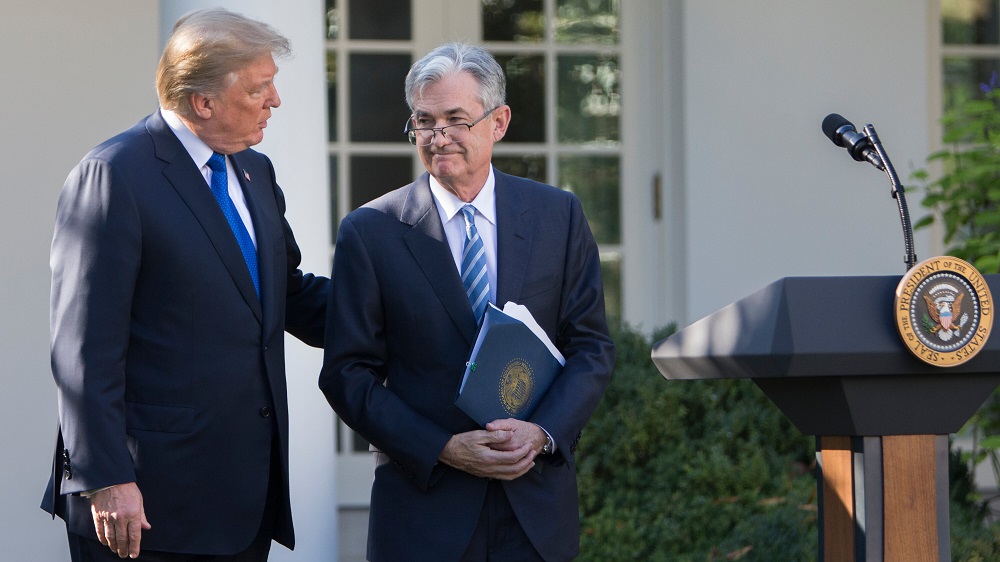Why US President puts pressure on FED Chair to cut rates
Federal Reserve Chair Powell continues to come under attack from President Trump and it does seem to have started unnerving the markets a bit. But what can the president hope to gain from this?

On the surface it seems that there’s little to gain and lots to lose from continual attacks on Fed Chair Powell. For a start, there’s no sense that the Fed will buckle to the pressure. For while many analysts noted before that one Trump appointee on the Fed, Governor Waller is taking a more dovish view than others, perhaps because he knows his name is in the frame for Fed Chair, he can’t make the Fed change policy on his own.
Secondly, other Fed members might ‘dig in’ against political pressure and so refuse to cut rates when they might have otherwise considered policy easing.
Thirdly, question marks over Powel’s future threaten to unnerve investors and if this is reflected in a surge in market-based inflation expectations, for instance, the Fed is more likely to keep policy stable than ease again.
So why do it? One explanation is that Trump is, indeed, angling to sack Powell despite his protests to the contrary. But he knows that this will be a controversial sstep, and so he is criticising Powell in order to gauge how the market might react. Very often politicians will initially refute the idea of a controversial policy change (such as sacking Powell) in order to let the shift percolate in the public’s mind so that acceptance of the policy change slowly creeps in. Once that’s happened the policy change can occur without causing the uproar that might have been expected if the change had been made without any prior ‘set-up’.
Could this be the president’s intention? Steven Barrow, Head of Standard Bank G10 Strategy rather doubts it. For one thing, changing the Fed Chair does not guarantee a change in Fed policy. Indeed, other members might be even more inclined to dig-in against apparent political pressure for lower rates. A second reason that Trump might be pressurising Powell so much might be to drive the Fed Chair to resign. But while it can’t be nice to be continually criticised, the chances of a Powell resignation seem slim. Powell rode out Trump’s criticism back in late 2018 and 2019 and he should do so again this time. And just as Trump’s pressure on rate policy could make the FOMC dig-in against rate cuts, Powell might dig-in against any pressure to resign out of principal. The Fed Chair has said before that he does not think that the president can legally sack him and hence we think it unlikely that he might jump first by resigning.
So, is there no logical reason why Trump should be putting pressure on Powell to cut rates? In Steven Barrow’s opinion, we can think of some reasons. One is the blame game or the ‘I told you so’ explanation. For if treasury yields surge higher over budget concerns, or the economy craters, Trump can blame Powell for not cutting rates. Another reason is that if, or when, rate cuts occur Trump can take the credit for a) predicting the cut and b) pushing the Fed into such a move.
In addition, there is a third, more worrying, rationale for Trump’s pressure. It is that he does not believe, or perhaps does not even care, if sacking Powell weighs heavily on financial market prices. Trump has shown that he is concerned these days by bonds, but not stocks as he seemed to be during his first term. If Powell is sacked and economic confidence tumbles, the resulting slowdown in the economy could outweigh fears about a loss of Fed credibility and so produce the lower bond yields that Trump craves. The US dollar might also slump but, with a USD1.2tr trade deficit to eliminate, Trump might not be so unhappy about that prospect either.
“Others have taken this dangerous route, such as President Erdogan in Turkey and that’s not ended well. But Trump will reason that the US is not Turkey. Just how different it is could be discovered in coming months should Trump sack Powell, or should Powell jump first. But we still feel that neither is likely”, said Steven Barrow.








